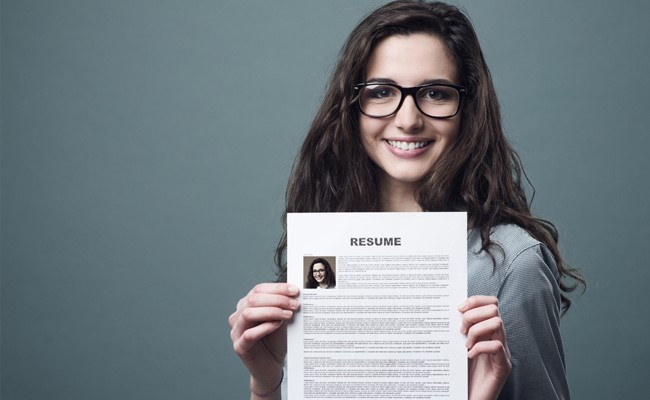When you’re looking at a stack of dozens of resumes on your desk, it can be difficult to give each the attention it deserves. You owe it to the applicants, not to mention your firm, to be as thorough as possible, though.
How can you make the best use of your time without overlooking vital details? We can help you quickly spot essential features and uncover potential red flags.
Nine Critical Resume Elements
While a person-to-person interview is obviously going to be a crucial factor in determining who the best candidates are, how they communicate, and whether they’d be a good fit for your company’s culture, you can uncover a lot up front when you study an applicant’s resume.
The document can tell you where a person has been, where he or she wants to go, what sort of natural skills the person has, which professional skills have been acquired along the way, and whether or not the applicant is a detail-oriented individual.
With the following information, you can hone your own skills and increase your chance of zeroing in on the best candidates from the start. Experienced recruiters who use the following guidelines have occasionally claimed they can decide which applicants will qualify for the interview process in a matter of seconds.
 Cover letter
Cover letter
The place to start is the cover letter. It’s the first thing you’ll see, so a sharp applicant invests a lot of time and energy on this piece.
According to job search expert Alison Doyle, a good cover letter should contain four distinct yet integrated elements. “A cover letter is comprised of several parts: contact information, a salutation, the body of the cover letter, and an appropriate closing,” she writes.
When you’re reviewing a cover letter, the body and closing are most important, but you should also check the contact information. Has the applicant provided comprehensive info (email, phone, address, Skype ID, etc.), or is he or she only willing to offer an email address?
You want to look for candidates who are ready to be as transparent as possible.
 Appearance or Layout
Appearance or Layout
The second thing you’ll want to take note of concerns appearance as opposed to content. Quickly scan the resume and review the layout.
Is it well-organized, professional, and concise? Or is it jumbled together, non-cohesive, and too “busy?” If the resume appears on more than one page, scan the additional pages.
Many applicants will focus all their efforts on the first page, and give little attention to the others. To be properly thorough, you have to scan them all.
 Technical Skills and Understanding
Technical Skills and Understanding
You can tell a lot about an applicant by reviewing the person’s relevant skillset and technical language. Does he or she have previous experience with software, systems, and processes that are relevant to the position?
Does the applicant’s language throughout the resume reflect a thorough understanding of the specific field or industry of your company? These can be telltale signs of a possible match.
An evident proficiency in terminology and relevant skills is worth a second look.
Job History
When you get to the individual’s job history, take special note two items: relevancy and progression. In other words, is this person prepared for the proposed position based on the previous jobs held; and does he or she have a history of being retained and regularly promoted by former employers?
The first will suggest how easily the applicant will be able to transition, and the second will tell you indirectly how highly previous employers regarded him or her. As a side note, if you notice any major gaps in employment — for example, the person didn’t hold a job between 2011 and 2014 — you’ll want to do more digging.
Personalized Attention
Another consideration is whether the applicant has any sense of who you are. Do the resume and cover letter imply a thorough knowledge of your organization, or did the applicant merely read a three-sentence summary of your firm on Monster.com?
Promising applicants will adjust their resumes to show you why they could be the perfect fit for your business.
Grammar and Accuracy
You can tell a lot about applicants by how well they write and whether they have a good command of the English language. In addition to whether they spell words correctly (and don’t simply depend blindly on modern spell-check technology), look at the words they choose, whether they place their commas properly, and how effective they are at putting thoughts and ideas on paper.
Measurable Accomplishments
There are obvious differences between vague and quantifiable statements … and you want to weed out the former while locating the latter. For example, instead of a candidate who says something like “Helped improve the company website,” it’s much more verifiable and valuable to see “Helped increase the company website’s conversion rate by 12 percent over a six-month period.”
Credibility of References
While you should attempt to contact all references wheneveryou’re seriously vetting an applicant, it may not be possible, given the volume of applications. But you can apply one quick tip.
Look at the titles of the references and weigh them accordingly. Does it appear that the candidate’s references are coworkers who may have labored in an adjoining cubicle, or are they members of upper management?
Level of Engagement
Finally, it doesn’t hurt to look at the resume and think about it from a personal perspective. Did the applicant engage with you throughout the resume, or did it feel black and white?
You’re probably looking for an innovative, creative, and personable employee, so keep this in mind. If the applicant is able to engage with you on paper, chances are pretty good he or she will do so in person as well.
Free Resume Management System | Recruiteze
We’ve taken the redundant administrative work out of recruiting. So don’t hesitate to use Recruiteze to help reduce the time consuming process of hiring new employees and filtering through resumes and applications.
Recruiteze is our online resume management system where candidates can apply to be added to your database immediately. End-users can access candidate resumes online and make changes quickly. Recruiting based on client needs has never been easier with your custom job board. It allows candidates and customers easy access to information and creates a level of professionalism expected in today’s marketplace.
If you have any questions or are interested in our enterprise package that offers unlimited access to all our services, contact us, today!
Read more:
Must Ask Interview Questions [List]
